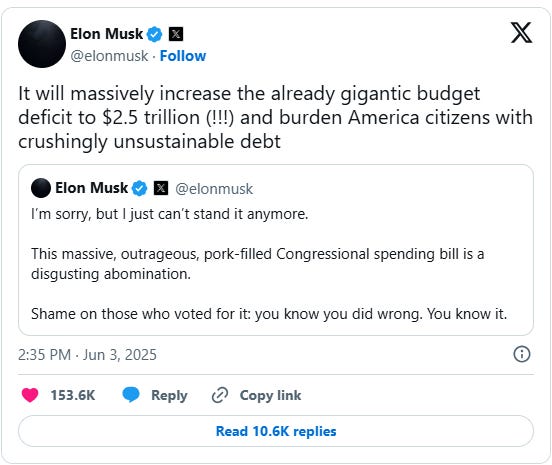Working Americans can give Independence Day new meaning
"Necessitous men are not free men"
Speaking on London’s Today program, Senator Bernie Sanders (Ind-VT) spoke openly about why Democrats took a beating in the November presidential election:
“I ran all over the country trying to elect Kamala Harris and begged them: Talk to the needs of the working class. Talk about raising the minimum wage to a living wage. Talk about real health care reform. Talk about building the kinds of massive amounts of housing that we need, and putting checks on landlords’ greed on housing..
Kamala spent more time with Liz Cheney almost than with anybody else. What is that message out to working-class people?”
We will never know how wildly different federal policies could have been had the Democratic party not intentionally swayed the Democratic presidential primaries in 2016 and 2020 in favor of establishment candidates. Senator Sanders, to his credit, continues to fight for the working class, a clear majority of American citizens (~61%).
Since at least President Theodore Roosevelt at the turn of the last century, American leadership has spoken openly and fought nobly for social insurance programs. Franklin Roosevelt (FDR), nearly 80 years ago, went so far as to advocate for an Economic Bill of Rights to spur Congress to look beyond political rights.
Speaking prophetically in his 1944 State of the Union address, FDR said, “we have come to a clear realization of the fact that true individual freedom cannot exist without economic security and independence. "Necessitous men are not free men." People who are hungry and out of a job are the stuff of which dictatorships are made.”
Americans value freedom above all else. “And an equally basic essential to peace is a decent standard of living for all individual men and women and children in all Nations. Freedom from fear is eternally linked with freedom from want.”
US Census data shows that working class Americans are more racially and ethnically diverse, earn half as much salary, and face more than twice the unemployment rate than college-educated Americans. In The Center for American Progress’s analysis, special attention is given to union membership:
Although union membership has long been seen as an alternative route to the middle class for workers without college degrees, allowing workers to bargain collectively for higher wages and better working conditions that in turn help build wealth, union density for workers without college degrees has steadily declined over the past several decades, reaching a historical low of just 9 percent in 2024. This is lower than the union membership rate for college-educated workers, indicating how hard current law makes it for workers—especially those without much economic power—to form unions..
Policymakers need to understand that the working class in America is large, diverse, and struggling economically. A plan to strengthen working families must be accessible to the whole of the working class and meaningfully address the economic factors that have created low wages and few opportunities for upward mobility.
In related news, Senate Republicans are meeting today to discuss the president’s big, beautiful bill. The Congressional Budget Office estimates the legislation will increase deficits by $2.4 trillion, while adding an extra $350 billion to border and national security and effectively removing health insurance for ~11 million people.
Michael Bloomberg opined in April of this year:
Republicans are discussing ways to borrow more — and not just a little more. New tax cuts are under consideration. And many want to extend provisions of the 2017 Tax Cuts and Jobs Act, which would otherwise expire at the end of this year..
Extending the law in full would increase the national debt by roughly $5 trillion over the next decade and $40 trillion over 30 years. The debt ratio in 30 years would soar to more than 200% of GDP..
Higher tariff revenues won’t come close to balancing the books. In fact, the impact on overall revenue is likely to be negative, because tariffs depress commercial activity and job creation.
Senate Majority Leader, John Thune (R-SD) has set a stretch goal of July 4th to pass the president’s bill that would cement the 2017 Tax Cuts and expand an already massive national debt to be paid by future generations. Currently a handful of Republican Senators (e.g. Josh Hawley and Rand Paul) are claiming publicly they cannot vote for the bill in its current state given its impact on the debt limit and/or Medicaid services. Given the Republican’s narrow Senate margin, 53-47, passage could potentially be at an impasse.
Democrats are projected to reject the bill in unison, and establishment Democrats decided to muster opposition by agreeing with Elon Musk:
House Minority Leader Hakeem Jeffries (D-NY) said “Breaking news. Elon Musk and I agree with each other. Every single Republican who voted for the One Big Ugly Bill should be ashamed of themselves."
The big, beautiful bill could decimate the working class with higher inflation, a weakened dollar, less healthcare and federal social assistance, and a terribly massive debt their children and grandchildren will have to bear. The wealthy like Elon Musk, Michael Bloomberg and Jaime Dimon worry openly about federal spending, the national debt, and the bond market. But Americans will not be saved by the ultrarich and certainly not establishment Democrats who think viral social media posts can supplant a substantive alternative legislative agenda.
Low union membership may have diminished unions’ political power, but if enough working class Americans continue to push their Senators on federal programs, like Medicaid, Congress may have to revisit the bill entirely. In March, Representative Richard Hudson (R-NC), the chair of the National Republican Congressional Committee, told a closed-door meeting of House Republicans to stop in-person town halls to avoid public anger over Trump federal cuts. That anger recently spilled out against Senator Joni Ernst (R-IA) who now infamously responded to impending Medicaid cuts by callously saying “Well, we all are going to die.” The incident and her ridiculous apology afterwards prove Ernst lives in a very different world; and the ensuing political reverberations prove the working class are not powerless - they can help save American freedom.


